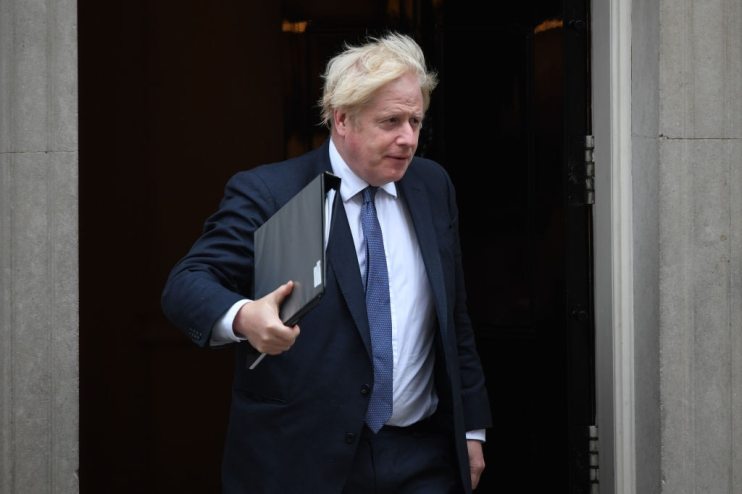Boris Johnson: UK deployment of troops to stop Taliban ‘not an option’

Boris Johnson has today declared that deploying tens of thousands of UK troops to stop the Taliban in Afghanistan is “not an option” and that there was “no appetite” among Nato partners to intervene further in the country.
Johnson told MPs today that “the west could not continue this US-led mission – a mission conceived and executed in support and defence of America without American logistics, without US air power and without American might”.
Johnson said that the priority now would instead be on trying to stop a humanitarian crisis in Afghanistan.
The Prime Minister said that he had spoken to Nato partners about plugging the military gap left by the US, but that no other countries were interested.
Donald Trump initially brokered a deal with the Taliban to remove all troops from Afghanistan by this year and Joe Biden has upheld this decision.
The Taliban were able to re-take the country in just over a week and invaded the Presidential Palace on Sunday, sparking fears for the fate of women and minorities across the country.
“I really think it is an illusion to believe there’s an appetite among any of our partners for a continued military presence or solution imposed by Nato in Afghanistan. That idea ended with the combat mission in 2014,” Johnson said.
“I do not believe deploying tens of thousands of British troops to fight the Taliban is an option no matter how sincerely people advocate it.”
He added: “We must deal with the world as it is.
“Accepting what we’ve achieved and not achieved. We will work with our international partners on a shared plan to support the people of Afghanistan and contribute to regional stability.”
Former Prime Minister Theresa May hit out at Johnson for not brokering a solution to ensure the Afghani government remained in power.
She said: “What does it say about us a country if we are entirely dependent on a unilateral decision taken by the United States?
“We all understand the importance of American support. Despite the comments from [Johnson] earlier, I find it incomprehensible and worrying that the United Kingdom was not able to bring together, not a military solution, but an alternative alliance of countries to continue to provide the support necessary to sustain a government in Afghanistan.”
Johnson said that the UK’s focus now was on “averting” a humanitarian crisis in Afghanistan as hundreds of thousands of people are expected to flee the country.
The UK has outlined plans to take on 20,000 Afghanistan refugees over a four-year period under a resettlement scheme in addition to evacuating Afghanis that have worked with the UK over the past 20 years.
“We have an enduring commitment to all the Afghan people and now more than ever we must reaffirm that commitment,” Johnson said.
“Our efforts must be focused on supporting the Afghan people in the region itself, particularly those fleeing conflict or the threat of violence. We call on the United Nations to lead a new humanitarian effort in this region.”
The government’s refugee commitment was criticised by Labour MP Chris Bryant, who said: “The home secretary announced this morning that the UK will be taking 20,000 refugees from Afghanistan, but that only 5,000 will be able to come this year. What are the 15,000 supposed to do? Wait around until they’ve been executed?”
Thousands of Afghans have descended on Kabul airport over the last few days in an attempt to escape the new Taliban regime.
The UK is aiming on getting out hundreds of British nationals and Afghan visa holders out of Kabul each day, with ambassador Sir Laurie Bristow personally processing visa applications.
Defence secretary Ben Wallace said days ago that some eligible people will not make it back to the UK.
Labour leader Sir Keir Starmer said this was “unconscionable”.
He added that the UK’s Afghan resettlement scheme “must be a resettlement scheme that meets the scale of the enormous challenge”.
“What the government has announced will not do that,” Starmer said.
“It is vague and will support just 5,000 people in the first year. Was that based on a risk assessment of those most in need or just plucked out of the air?”